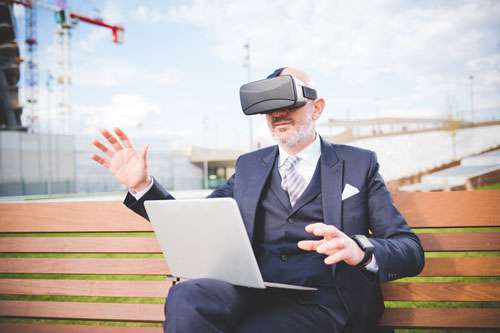Augmented reality is changing the landscape of consumer experience

From buying red wine to fulfilling customer orders, augmented reality is changing the landscape of the retail experience.
Professor Ko de Ruyter, Professor of Marketing at Cass Business School, said, "Companies such as IKEA, L'Oreal, and BMW have already added AR applications to their frontline service delivery. What our research shows is that AR is enhancing online and offline service experiences. The real-time and interactive blend of virtual and physical information results in a compelling experience of presence, where virtual objects become part of the physical world.
"For example, the app Vivino, let's you choose the perfect wine for any occasion. The user simply holds up their phone and Vivino projects information about each bottle of wine, based on its fit with certain foods, acidity level and reviews by other wine consumers. You become an instant wine 'expert' thanks to the power of AR!"
The team's research demonstrates how implementing AR into retail systems has the potential to reverse deep-rooted consumer dynamics by empowering users to actively shape their own service experience, and therefore make choices that are more consistent with their personal goals.
The team set up various scenarios to investigate how people would use AR in different retail scenarios. In relation to online B2C experiences, they found that current AR applications could compensate consumers for the absence of actual products to trial while online shopping.
Professor De Ruyter added, "Allowing consumers to virtually fit, for instance, a pair of sunglasses to their face in a virtual mirror and subsequently control this presentation with head movements substantially raises the customer's perception of value for the online service experience. This results in the consumer feeling a similar degree of sensory input as if they had actually been in the opticians trying on the glasses. The consumer is then engaged in the experience of a self-paced assessment of what it the best product for them."
Their research also found that AR could enhance offline experiences. The team developed a mobile AR application to be used in a simulated supermarket setting. The app guides consumers to make healthier food choices by providing advice about the product they are facing on a supermarket shelf.
"By de-saturating the colour of 'unhealthy' product options in a supermarket setting, our AR application created a digital mark-up with profound implications for consumer decision making and marketing practice," said Professor De Ruyter.
Their findings showed that the AR app had the ability to filter out distracting information therefore improving the consistency of consumers' decisions to choose healthier products. The app empowered consumers to make choices that were consistent with their diet and lifestyle goals,
However, their app also reduced the influence of packaging design and shelf positioning; two important tools relied on by retailers to drive sales. Professor De Ruyter concluded, "Augmented reality has the potential to disrupt existing marketing practice. Embracing such consumer empowerment, organisations can gain the opportunity to enhance the service experience and enable personalisation in traditional brick and mortar retail settings."
Provided by City University London





















